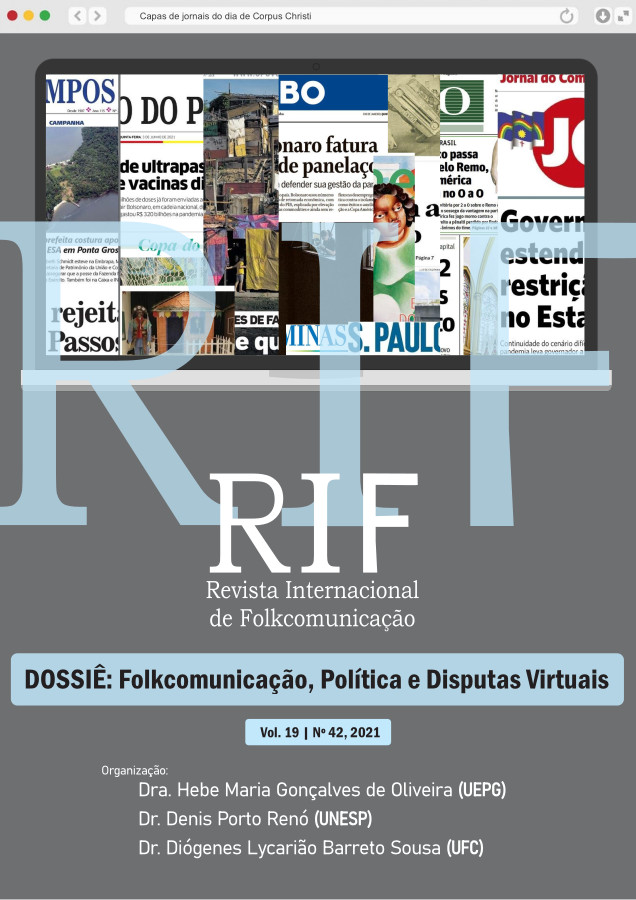Strategic Contributions of Folk c ommunication in the context of democratic ruptures
DOI:
https://doi.org/10.5212/RIF.v.19.i42.0004Abstract
"Evil winds are blowing on the blue planet." With this phrase Manuel Castells (2018) begins a dramatic analysis of the multiple crises that democratic systems in the world are going through. From the countries considered economic powers to the underdeveloped, they surrender to savage neoliberalism and retreat their actions of social commitment, generating major setbacks in all areas: housing, food, employment / income, health, education, cultural. An instability that provoked popular uprisings of protest through large public mobilizations in countless countries throughout 2019. And it is in this context of ruptures and manifestations that we delineated a reflection to understand the role of Folkcommunication as a strategic research method; either in the identification of the actors and communicative procedures of social resistance groups, or in the use of the concepts that define the communicative mechanisms and the characteristics of marginalized groups. A reflection with a qualitative descriptive approach, through bibliographic and documentary survey, which was developed in two stages: the first brings the context of the manifestations in the face of democratic ruptures and, the second, elucidates theoretical and methodological aspects of Folkcommunication that assist in a unveil strategic. In this way, we could see that Folkcommunication is a fundamental discipline to cover this context and, further, to clarify how marginalized groups create folkcommunication processes of insurgency, pressure and social determination. Folkcommunication; Marginalized Groups; Democracy; Methodology.
Downloads
Published
How to Cite
Issue
Section
License

Este obra está licenciado com uma Licença Creative Commons Atribuição 4.0 Internacional.
Os autores são responsáveis, em qualquer que seja o formato do texto, pelas opiniões expressas ou indiretas presentes em seus respectivos trabalhos, não endossáveis pelo Conselho Editorial e pelos editores da Revista, bem como pela autenticidade do trabalho. Ao publicar trabalhos na Revista Internacional de Folkcomunicação, os autores cedem automaticamente os direitos autorais à publicação para veiculação das produções acadêmicas, sem ônus para a Revista. Os autores detêm os direitos autorais do texto para o caso de publicações posteriores e concedem à Revista Internacional de Folkcomunicação o direito de primeira publicação, com o trabalho simultaneamente licenciado sob a Creative Commons Attribution License, que permite o compartilhamento do trabalho com reconhecimento da autoria e publicação inicial nesta Revista. Por serem publicados em revista de acesso livre, os artigos são de uso gratuito, com atribuições próprias, em atividades educacionais e não-comerciais, sendo permitida a publicação simultânea em repositórios institucionais.































